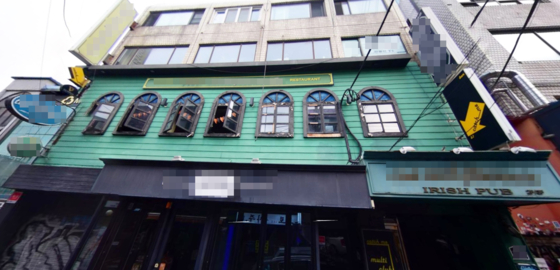![A commercial house in Itaewon-dong, Yongsan-gu, Seoul, bought last year by a Chinese person with a loan of about 5.9 billion won from a domestic bank. [사진 소병훈 더불어민주당 의원실]](https://i0.wp.com/pds.joins.com/news/component/htmlphoto_mmdata/202101/21/6c5a635a-141c-441d-bca8-1314eaf7fbda.jpg?w=560&ssl=1)
A commercial house in Itaewon-dong, Yongsan-gu, Seoul, bought last year by a Chinese person with a loan of about 5.9 billion won from a domestic bank. [사진 소병훈 더불어민주당 의원실]
Last year, Mr. A, a Chinese, borrowed about 5.9 billion won from a domestic bank and bought a house in Itaewon-dong, Yongsan-gu, Seoul for 7.8 billion won. That means 76% of the total house price was raised by loan.
In addition, American B bought an 80% stake in a house in Dongja-dong, Yongsan-gu, Seoul, for 1.28 billion won. Mr. B was already a multi-homed man who owned three houses, including a detached house in Dongja-dong, Yongsan-gu, and a commercial house in Goseong-gun, Gangwon-do. He purchased Dongja-dong’s detached house by taking a loan from Goseong-gun’s commercial house as collateral, and last year it was found that he bought a new house in Dongja-dong by taking this house as collateral.
The reason they were able to receive high-priced loans from domestic financial institutions was because they purchased commercial housing including neighborhood living facilities. In 2017, the government designated all areas of Seoul as overheated speculation districts, and from 2018, if you buy more than 900 million high-priced houses in the area, mortgage loans were prohibited unless it was for the purpose of living. As a result, it has become virtually impossible for foreigners to purchase ordinary houses by receiving loans from domestic financial institutions. However, you can get loans from 60% to 80% of the appraised price for commercial or commercial housing.
As such, the number of foreigners buying real estate for rental business in Korea is increasing. According to Democratic Party lawmaker So Byung-hoon of the National Assembly’s National Land, Infrastructure and Transport Committee on the 21st, an analysis of the housing financing plan submitted by the Ministry of Land, Infrastructure and Transport showed that the number of foreigners in Seoul and Gyeonggi region submitted plans increased from 1128 in 2019 to 1793 as of October last year. In particular, about 40% of 691 people were confirmed to have purchased their homes for rental business, not for the purpose of living.
Rep. So Byung-hoon said, “Recently, foreigners who buy real estate for rental business in Korea are turning their eyes to shopping malls or commercial houses that are not subject to government loan restrictions.” “To prevent foreigners from speculating on real estate in Korea, the banking law and regulations It is necessary to revise and strengthen the regulation.
Since 2012, as the immigration population and Chinese real estate investment have soared and housing prices have risen, Australia has banned foreigners with no income in their own country and tightened regulations on mortgage loans. Rep. So said, “Since then, foreigners’ housing investment in Australia has been rapidly reduced by controlling the inflow of mainland capital and raising the tax rate on foreign real estate investment.”
Reporter Lee Ga-young [email protected]
